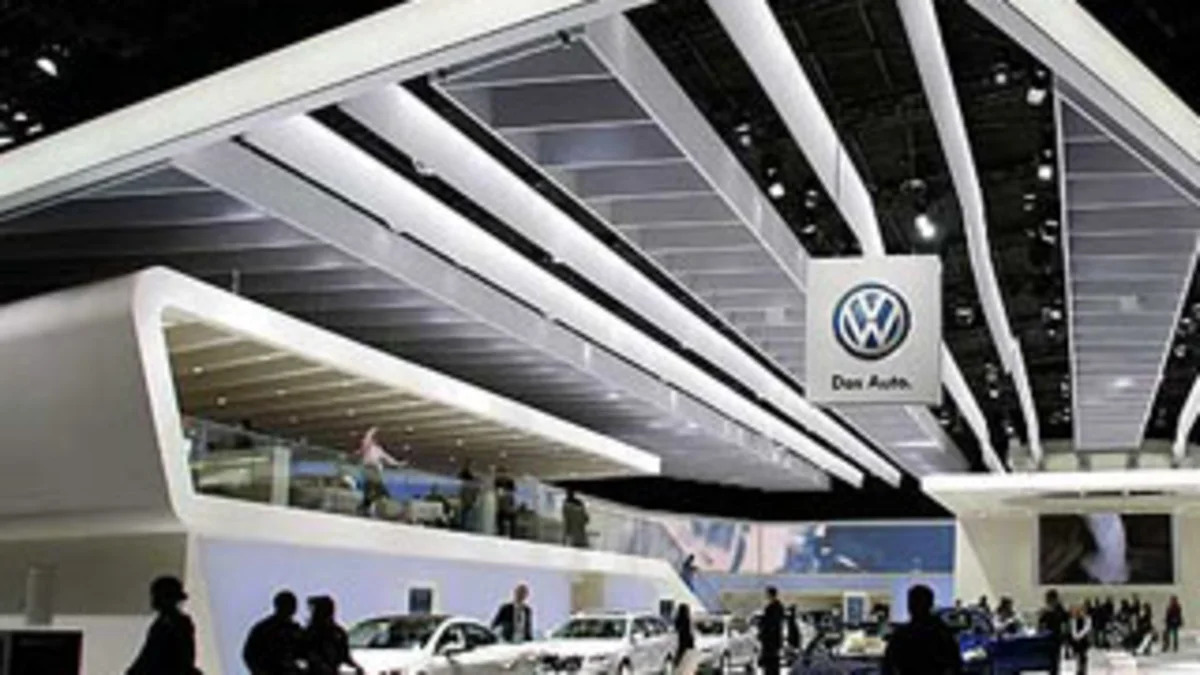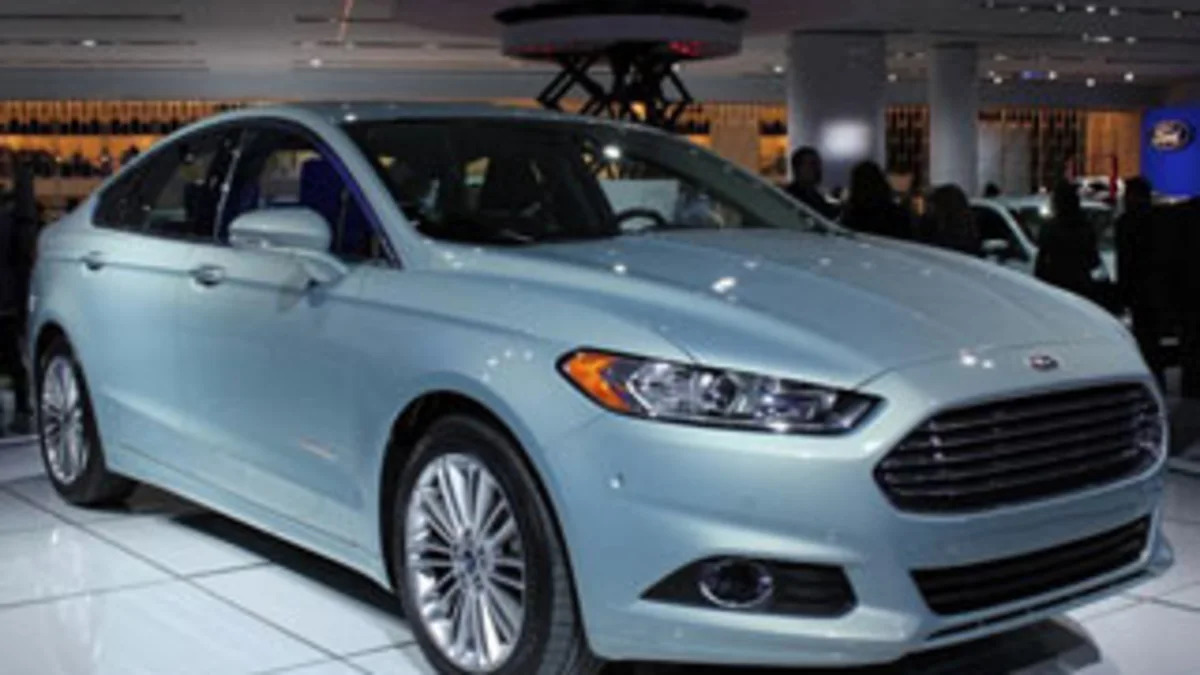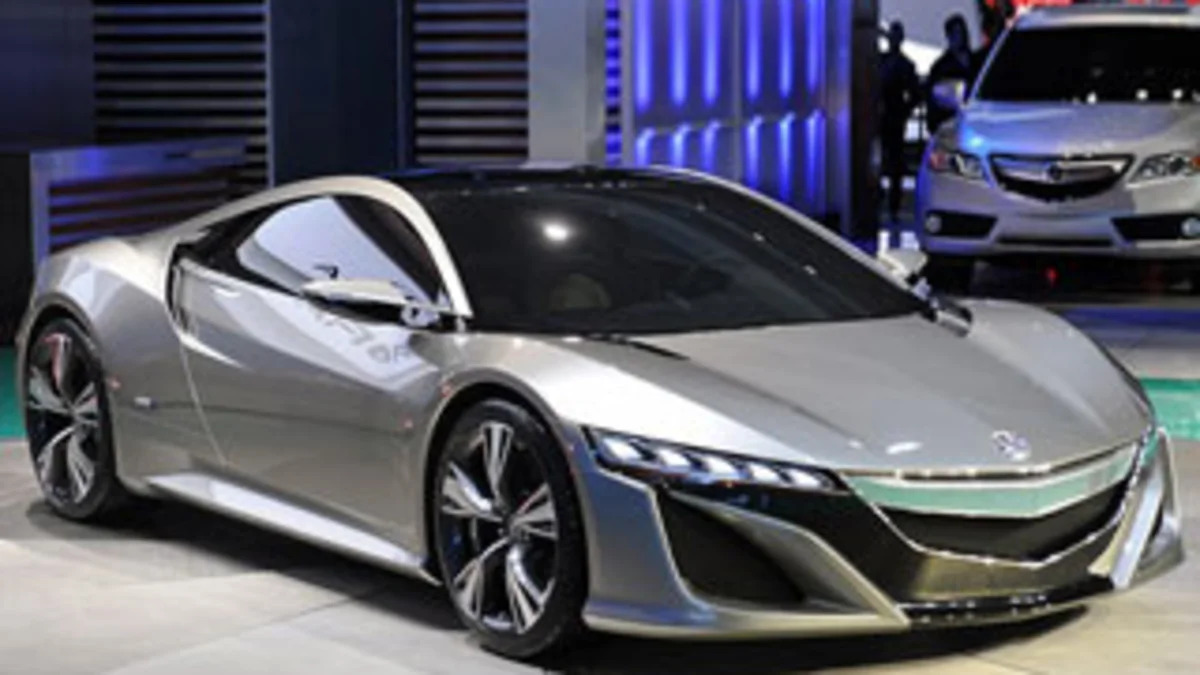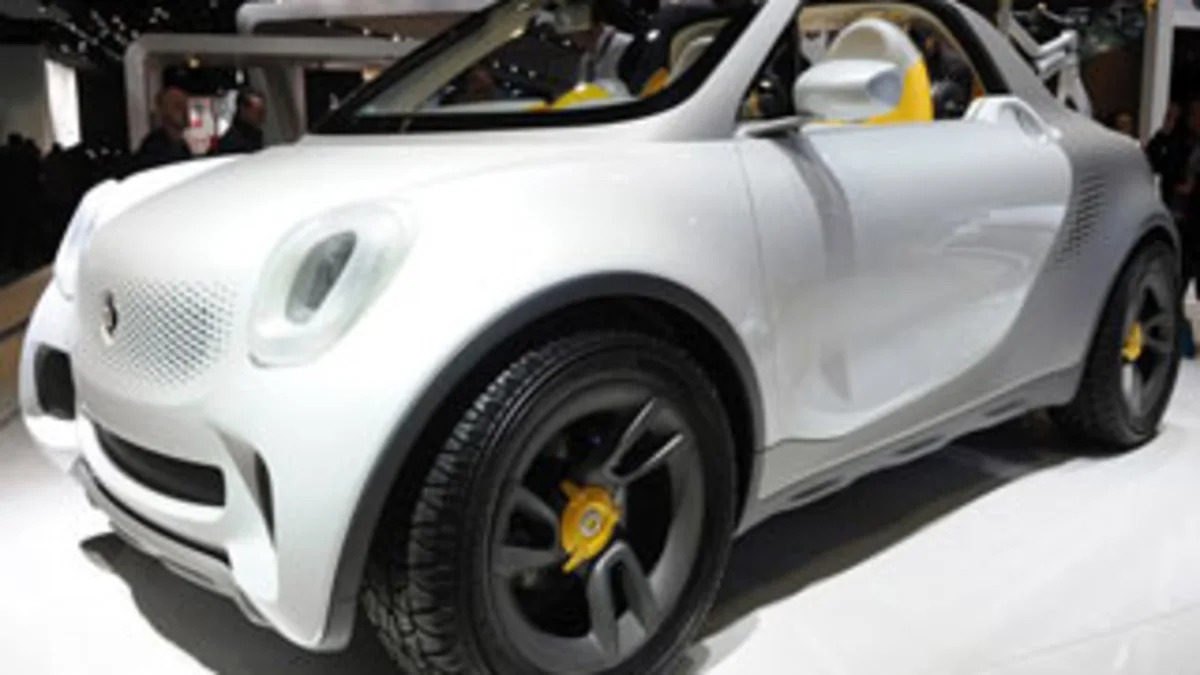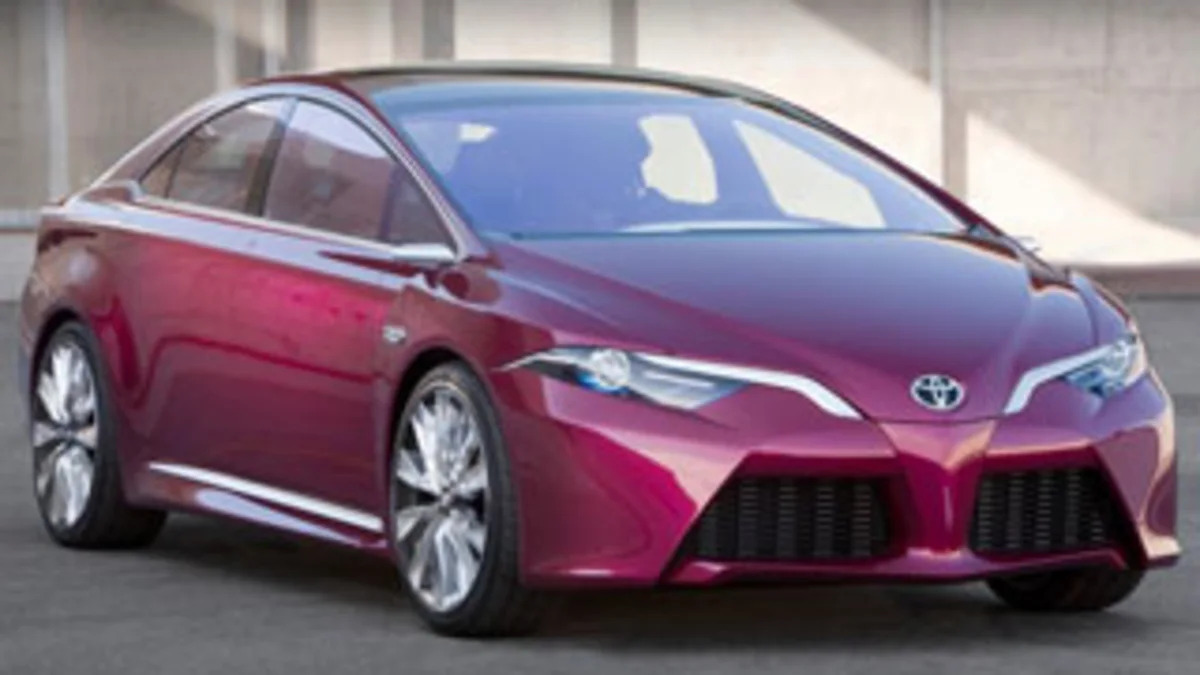2012 detroit auto show hybrids
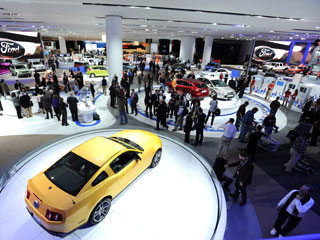
-

Judging from the hype at the North American International Auto Show in Detroit this week, one might think electric cars and hybrid cars are about to take over the world. Nearly a dozen cars at the show, which runs until Jan. 22, come with advanced battery power instead of just gas-fueled engines.
But speak to industry veterans and it's clear that gasoline will be king for many years. Consumers' enthusiasm, so far, is mild for the alternative fuel cars.
Few auto executives think there will be mass acceptance of electric and hybrid cars until at least 2025, when the country's Corporate Average Fuel Economy, or CAFE, regulations kick in, forcing automakers to make cars that attain 54.5 miles per gallon on average.
Until then, relatively low gas prices and cheaper technology will keep motorists humming along in regular gasoline-powered internal combustion engines. -
"Internal combustion engines are not going away anytime soon," said Gary Silberg, head of KPMG's automotive unit and a partner at the firm. Silberg released a report last week that demonstrated the skepticism that global auto executives have for electrifying cars: About 65 percent of those surveyed say electric vehicles and hybrid cars will account for just 6 percent to 10 percent of global annual sales worldwide through 2025.
Even though hybrid and electric car sales have been on the rise in recent years, consumer demand is already softening. Not only are gas prices staying stubbornly below $4.00 per gallon, a tax credit aimed at making it more economical for Americans to plug in an electric car expired on Jan. 1. Consumers can no longer obtain $1,000 to install at home a 220-volt electric car-charging device. A $7,500 federal tax break given to those who purchase electric vehicles could also be on the chopping block as legislators seek more ways to balance the budget.
Still, Nissan CEO Carlos Ghosn, for one, says his company is staying the course, pushing electric vehicles. "I still believe there will be 30 million electric vehicles on the road by 2030 worldwide, and that the U.S. will be a big piece of that."
Are you ready to dive in to new hybrids and electrics? Here are the new offerings being touted at this week's auto show in Detroit. See if there is one for you. -
Ford Fusion Hybrid and Plug In
When the original Ford Fusion Hybrid debuted in 2009 as a 2010 model, it was rated at 41 miles per gallon in the city, making it the most fuel-efficient mid-size sedan in North America. Ford aims to re-capture that same magic with the 2013 Fusion Hybrid, which makes its debut today at the 2012 North American International Auto Show in Detroit.
Final EPA numbers have not been released just yet, but Ford's preliminary data suggests that the 2013 Fusion Hybrid will be capable of achieving 47 mpg in the city, along with an immensely respectable 44 mpg highway. That's better than the mid-size hybrid offerings from Hyundai, Kia and Toyota.
Ford is also coming out with the Fusion Energi Plug-In, which is expected to go more than 40 miles on a batter charge before a gas engine kicks on to power the lithium-ion battery when it is drained. No worries about running out of power unless you also run out of gas. -
Acura NSX Concept
As any Acura diehard would be quick to tell you, a revival of the iconic NSX is long overdue. In true Honda fashion, the automaker decided that if it was going to go to the trouble of producing a legitimate sports car, it was going to take on the very best in the industry
Power, as with the original, will come from a V6 mounted behind the two occupants that sends its power to the rear wheels; except this time, it will be augmented by an electric motor.
Acura's latest SH-AWD incorporates one electric motor in a dual-clutch transmission, forming a hybrid setup. Additionally, two more motors can instantly send negative or positive torque to the front wheels during cornering for improved handling and efficiency, and the whole package can be tailored via software. Acura says the new all-wheel-drive system will provide "supercar acceleration while offering outstanding efficiency."
We're not so sure environmentalists are ready to accept the notion of an eco-friendly supercar, but it's clear Acura's parents at Honda are keen to keep emissions and fuel usage in check. "In this new era, even as we focus on the fun to drive spirit of the NSX, I think a supercar must respond positively to environmental responsibilities," says Takanobu Ito, president and CEO of Honda Motor Co. -
Smart ForUs
The Smart For-Us concept features a 75-horsepower electric motor that twists up 98 pound-feet of torque. The battery is a 17.6 kW/h lithium ion battery pack, which is more juice than a Chevrolet Volt. Smart promises zero to 60 times in the range of five seconds and an 80 mph top speed, which isn't bad for a green machine with a bed. Smart claims that the battery pack can go from 20 percent charged to 80 percent in 3.5 hours, while a full juicing takes place in eight hours.
The For-Us boasts a smallish but undoubtedly handy 11.6 cubic feet of space. Smart no doubt isn't interested in going toe-to-toe with the likes of the F-150 and the Silverado, but it's still difficult to see such a concept model ever making its way to production. -
Toyota NS4
Toyota can justifiably be proud of its position not only as one of the largest automakers in the world, but also the world leader in hybrid vehicles. In fact, the Japanese automaker claims that half of all hybrids sold are Toyotas. But it didn't get there by resting on its proverbial laurels, and it isn't going to maintain (let alone increase) its market share by doing so, either. That's where the concept car showcased at this week's North American International Auto Show comes in.
Taking position as something of a Prius of the future, the NS4 concept cuts a striking profile – certainly more striking than the current kamm-tailed Prius. The hybrid tech showcased here should reach showrooms around 2015.While Toyota works on all manner of electric and fuel cell powertrains, the NS4 packs a similar plug-in hybrid system as the current Prius PHEV. But the show car encompasses a slew of other technologies, like a smartphone-like interface to monitor and control everything from the air conditioning to the battery charge.
Toyota has also packed the NS4 with its latest pre-collision and blind-spot monitoring systems, adaptive headlights and four new types of glass for greater safety and fuel economy.
